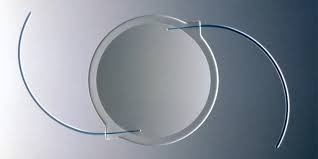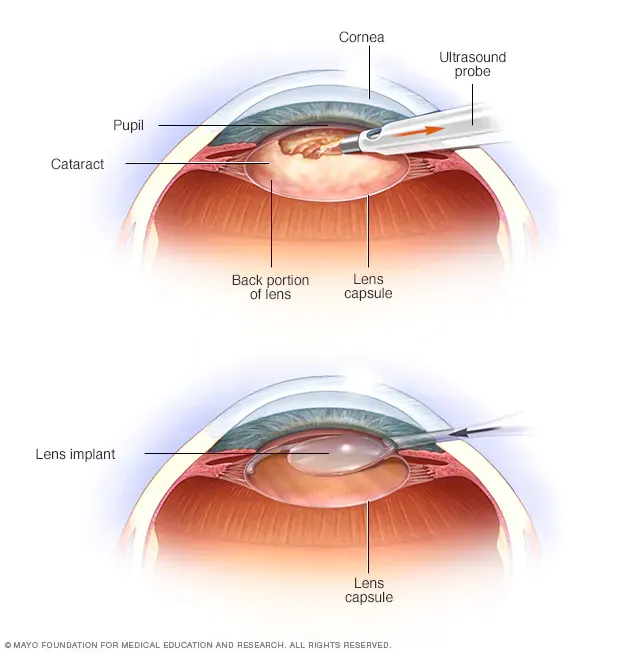Cataract Surgery:
What You Should Know

Is your vision a little blurry? Do colors seem washed out? Are you more sensitive to the glare of bright lights? These are all signs that your eyes may be developing cataracts.
As we age, cataracts form when a change in eye's structure causes the naturally clear lens to become cloudy. Regular exams can help determine whether cataracts are affecting your vision in one or both eyes. Cataracts require surgery if you want to see clearly again.
Here at Shipp & Wooten Eye Center, our highly regarded ophthalmologists routinely perform state-of-the-art cataract surgery to restore vision. If you need cataract surgery so you can see clearly again, here’s what to expect before, during, and afterward.
Before cataract surgery
Before cataract surgery, your vision with cataracts typically becomes cloudy, and colors appear less vibrant. If not treated, cataracts may continue to increase in size, leading to vision loss and eventually blindness. Since cataracts cloud the lens inside your eye, wearing glasses no longer helps you see clearly.
Losing your vision can be a frustrating or even frightening experience. However, with today’s advanced technology and the expertise of our skilled ophthalmologists at Shipp & Wooten Eye Center, removing cataracts from your eye and replacing your lens with a new, clear one, is a relatively simple and effective short out-patient procedure.
You may be a good candidate for cataract surgery
If you have any of the following vision problems, you may be a good candidate for cataract surgery:
- Clouded or blurred vision
- Sensitivity to light
- Glare or Halos from bright lights
- Poor night vision
- Difficulty reading or watching TV
- Dim, dingy appearance of colors
To prepare, we’ll carefully examine your eyes, discuss your overall health, and evaluate the size and location of your cataracts. We also measure your eye to determine the best type of intraocular lens (IOL). During cataract surgery, the new IOL replaces your natural lens so you can see clearly. Each surgery is performed about a week or two apart, and rarely do you have to stop or change any medications you may be taking.
Choosing your IOL
Based on your vision needs, we will work together with you to select the IOL that’s best for you. You won’t see or feel your new lens once it becomes a permanent part of your eye, but you’ll have improved vision. Some of the available IOLs include:
- Monofocal IOLs to correct either nearsightedness or farsightedness
- Multifocal IOLs to correct both nearsightedness and farsightedness with a single lens
- Astigmatism (toric) IOLs to eliminate astigmatism so you can see clearly far away
With the new IOL, many people see even better than before undergoing cataract surgery, however, that doesn’t always mean you will never have to wear glasses or contacts again. Some lenses may correct for distance vision but not near vision, which would require one to still use reading glasses.
During cataract surgery
Today, cataract surgery is performed on an outpatient basis. During surgery, we use a local anesthetic to numb your eye so you won’t feel anything during the procedure. You’ll be awake during surgery, but you won’t be able to see what’s happening in your eye.
First, we create a tiny incision in your eye near the edge of your cornea, and then emulsify the cataract using ultrasound energy. We remove the emulsified material of your old lens through the tiny incision and install your new, clear intraocular lens. This part of the procedure takes about 15 minutes, but you’ll be here longer to prepare your eye for surgery and afterward for a brief recovery period.
After cataract surgery
Once your new IOL is in place, it becomes a permanent part of your eye and provides improved vision for the long term. You won’t be able to drive right away, so be sure to arrange for a friend or family member to take you home.
Your vision may be blurry at first as your eye adjusts to your new lens and heals from surgery. Colors may appear brighter immediately following surgery, since cataracts typically make colors look dim and dingy. You’ll return for an eye exam a day after cataract surgery so we can monitor your progress.
The first few days after surgery your eye may feel itchy or irritated, but that’s completely normal. You may need to wear a protective shield over your eye for a few days while you sleep. You should be careful not to rub your eye or do any strenuous activities for about a week.
It can take about a month to fully recover from cataract surgery, but you’ll notice a difference in your vision very soon after surgery, usually within a few days.
If you’ve been diagnosed with cataracts, or you’re having any of the symptoms, cataract surgery can make a big difference in your ability to see the world clearly again. For many adults, it’s like a breath of fresh air to finally be able to view the world through a crisp, clear lens.
Find out if cataract surgery is right for you. Call the office to schedule a consultation or click the blue button on this website to request an appointment.
If you feel the effects of cataracts in your daily life, schedule a consultation to discuss cataract surgery.
New Paragraph




Share On: